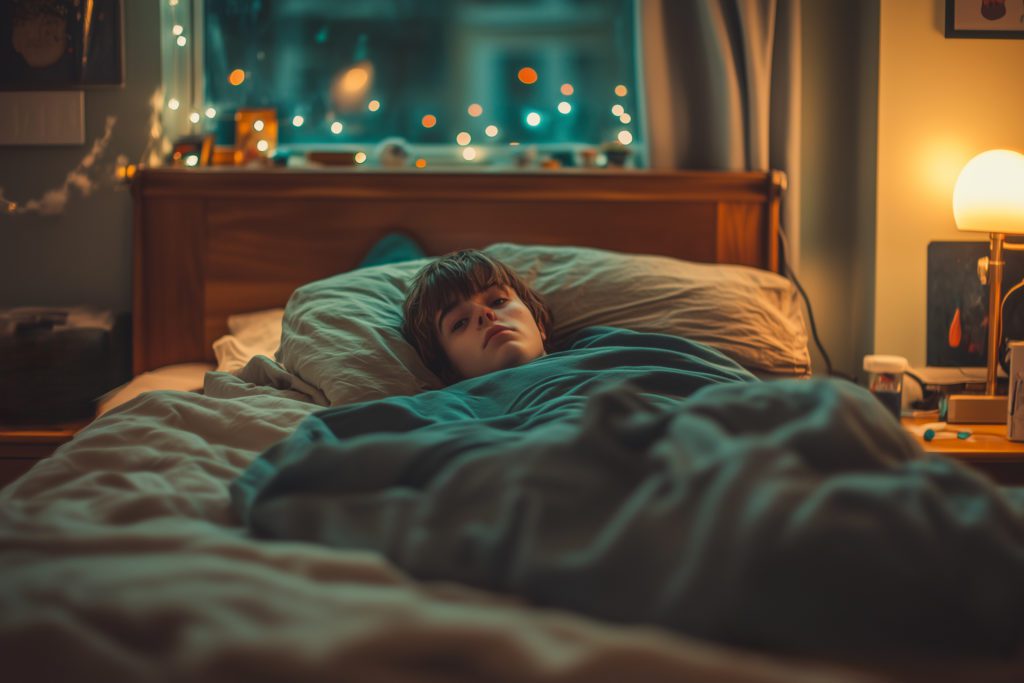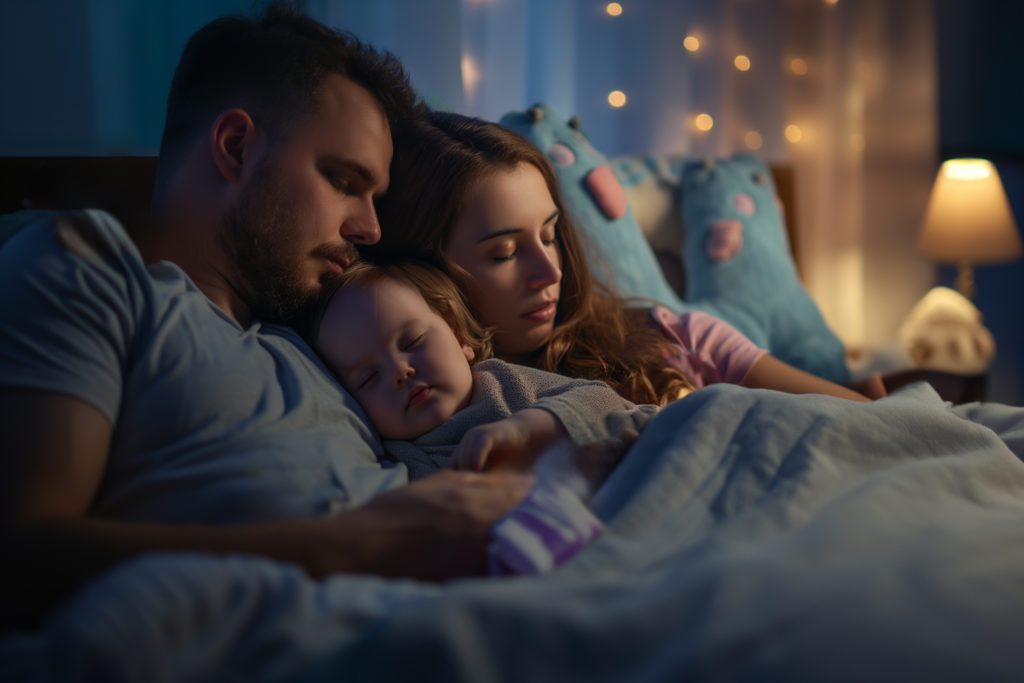
Stress, Anxiety, and Sleep: Coping Strategies for Teenagers
Are you wondering how to help your teenager sleep with stress and anxiety? Read ahead for expert coping strategies for parents to help their teens sleep better.

Teenagers today are trapped in the vortex of stress and anxiety. Whether it's about taking that exam or simply trying to fit in with others, life can feel more challenging than it seems to be. And guess what? Stress and anxiety can significantly impact their ability to sleep.
We all know that sleep is crucial for health, but catching it almost becomes impossible when stress and anxiety interfere. But fear not. This article provides a comprehensive guide for parents to help their teenagers manage these issues and reclaim their sleep. We will also explore why stress and anxiety disrupt sleep and share coping strategies specifically tailored for teenagers.
Stress and Anxiety in Teenagers
Stress and anxiety are like the uninvited guests at a party. They show up unannounced and ruin the fun. For teenagers, these feelings often stem from schoolwork, social pressures, extracurricular activities, and that ever-present quest for self-identity. Imagine dealing with all that while trying to remember where you left your homework. No wonder teens feel overwhelmed!
Stress is the body's natural response to a challenge or demand. In simple words, it is a state of mental tension when you are trapped in a difficult situation. On the other hand, anxiety is that lingering feeling of dread or worry, even when there's no immediate threat.
You can easily understand the difference between stress and anxiety with this simple example. Let's suppose your young boy has an exam next week. He is an overthinker, and he remains worried about how he is going to pass that exam even when he is studying right. It's called anxiety. Anxiety will affect his learning.
Conclusively, he will not be able to prepare for the exam. Next, when the day comes, he is sitting in the exam hall, and his body starts producing cortisol and adrenaline to help him deal with the situation. This is stress. Most of the time, these two situations are interlinked.
When stress and anxiety team up, they wreak havoc on sleep. They can keep the mind racing at night, making it hard to fall asleep, stay asleep, or enjoy deep, restful slumber. Therefore, understanding these feelings is the first step towards managing them and improving your teenager’s sleep.
How to Help Your Teenager Sleep with Stress and Anxiety: The Science
How exactly do stress and anxiety interfere with your teenager's sleep? The brain functions like a computer, and stress is akin to an endless stream of pop-up ads that slow it down. When stressed or anxious, the body releases cortisol, the "stress hormone," which can drain energy out of your teenager’s body.
Stress and anxiety can also disrupt the sleep cycle, the natural progression through different stages of sleep. Usually, a person would move smoothly through light sleep, deep sleep, and REM sleep. However, stress and anxiety can cause interruptions, preventing the deep, restorative sleep necessary for overall health.
Research indicates that chronic stress and anxiety can lead to long-term sleep problems. Therefore, it is essential to find effective strategies to manage these feelings. Fortunately, there are several approaches that can help your teenager achieve better sleep despite stress and anxiety.
Coping Strategies for Better Sleep
Now, let us explore strategies to help your teenager sleep with stress and anxiety. Consider these methods as tools to improve their sleep routine.
Healthy Sleep Hygiene
The most critical step is to develop healthy sleep hygiene. No, we're not talking about brushing the teeth before bed (though that's important too).
Creating a relaxing bedtime routine can signal your teenager's brain that it is time to wind down. Encourage activities such as taking a warm bath, reading a book, or listening to calming music. Consistency is crucial, so try to help your teenager go to bed and wake up at the same time every day, including weekends.
Teach Relaxation Techniques
Deep breathing exercises can be a game-changer. Teach your teenager this simple technique:
- Inhale deeply through your nose for four seconds.
- Hold for four.
Exhale through your mouth for six.
This exercise can serve as a mini-meditation session that calms the mind. Progressive muscle relaxation is another useful technique. Encourage your teenager to tense and slowly release each muscle group, starting from the toes and working up to the head. This method can help them relax fully before sleep.
Limit Caffeine and Screen Time
Caffeine and sugar can contribute to insomnia, so it is advisable to avoid them in the hours leading up to bedtime. Additionally, screens from phones, tablets, and computers emit blue light that can trick the brain into thinking it is still daytime. Encourage your teenager to power down devices at least an hour before bed. If device use is necessary, consider using blue light filters or glasses to reduce the impact.
By incorporating these strategies into your teenager's nightly routine, they will be better equipped to manage stress and anxiety, leading to improved sleep. Remember, it may take some time to adjust, so patience is key.
When to Seek Professional Help?
Sometimes, despite our best efforts, stress and anxiety can feel overwhelming. In such cases, it is important to seek additional support. Encourage your teenager to share their concerns with someone they trust, such as a parent, teacher, or counselor. Opening up can provide relief and new perspectives, helping them feel understood and not alone.
If stress and anxiety significantly disrupt your teenager's sleep and daily life, consider seeking professional help. Therapists and counselors possess the skills and techniques to help manage these issues effectively.
There are also apps designed to support mental health and sleep, like Pillow that can track your teenager's sleep patterns and provide insights to help you take the required action on time before it's too late.

Written by
Dr Aqsa
As a Medical Doctor, Dr Aqsa, uses her knowledge to craft complex medical information that is understandable to the general public. For years, she has tried to improve health literacy and empower readers with valuable health knowledge through her articles, blog posts, and educational materials.
Download Pillow
Get help
Press & News
Legal
Connect
X (Twitter)
Company
Copyright © Neybox Digital Ltd.



